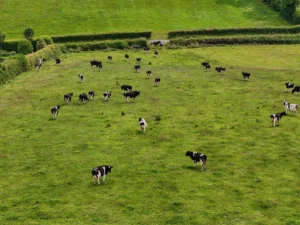
Cattle, greenhouse gases and the case for better methane metrics
Why the global warming potential of methane emissions from cattle production needs a closer look
Michelle Michael and Brandon Whitworth traveled to more than 40 global locations in search of an answer to one simple question: Are we better off in a world without cows? They’ve interviewed dozens of scientists, academics, farmers, ranchers and experts worldwide–but what do college students in Lexington, Kentucky, think?
To find out, they hit the streets outside the William T. Young Library at the University of Kentucky (UK) to spark an important conversation about the role cows play in our daily lives and the world around us. The goal of their interviews was not for students to cement an opinion, one way or the other. It was to encourage them to think more deeply about how cows impact our world–and hopefully, to continue the conversation.
In a world that’s increasingly focused on sustainability, climate change and the future of food, cows are a hot topic of debate. From health concerns around the topic of eating red meat to the environmental impact of methane emissions, there’s a widespread perception that cows are detrimental to both the environment and our lives. But what would happen if all the cows were suddenly gone?
Through their interviews with Michelle and Brandon, it’s clear that UK students are aware that when it comes to cows and their impact on the world, it’s not black and white.
Watch Michelle and Brandon’s candid interviews with college students to see what they had to say on topics such as:
Today’s students are tomorrow’s scientists, farmers, consumers, policymakers and business leaders.
Maintaining an open dialogue about sustainability and agriculture is key to tackling the global challenges we face.
Help us broaden the conversation. Here are three things you can do right now:
This is the first of a series of videos that will be shared on World Without Cows social media. Follow @worldwithoutcows to join the discussion.

Why the global warming potential of methane emissions from cattle production needs a closer look
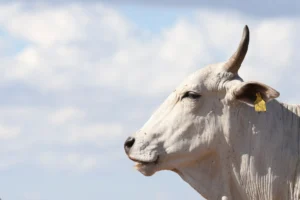
At COP30, the world’s eyes are on Brazil, and the cattle ranchers leading a global transformation.
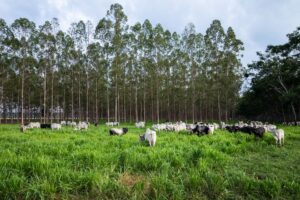
Restoring 40 million hectares of pasture could feed billions and ease pressure on the Amazon. Is the world paying attention?
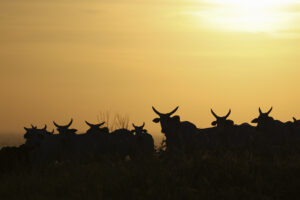
New mini-doc explores deforestation, food security and the Brazilian cattle sector’s path to a more sustainable future
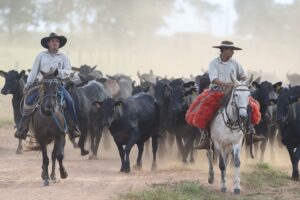
Mention Brazilian beef, and you’re likely to spark discussion about familiar themes: deforestation, emissions and blame. What do we find when we dig deeper? Here are the answers to five top questions about Brazil’s role in protecting the Amazon and feeding the world.
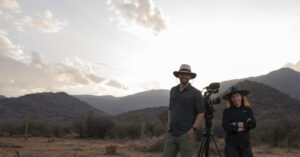
From science to the big screen: Discover how a single question grew into a global journey.
As climate change intensifies and the world’s population continues to grow, the pressure on our global food production system mounts. You can play an active role in shaping a more sustainable planet for future generations. Fill out the form below to learn more about how you can partner with us.
Receive notifications about the release date, new online content and how you can get involved